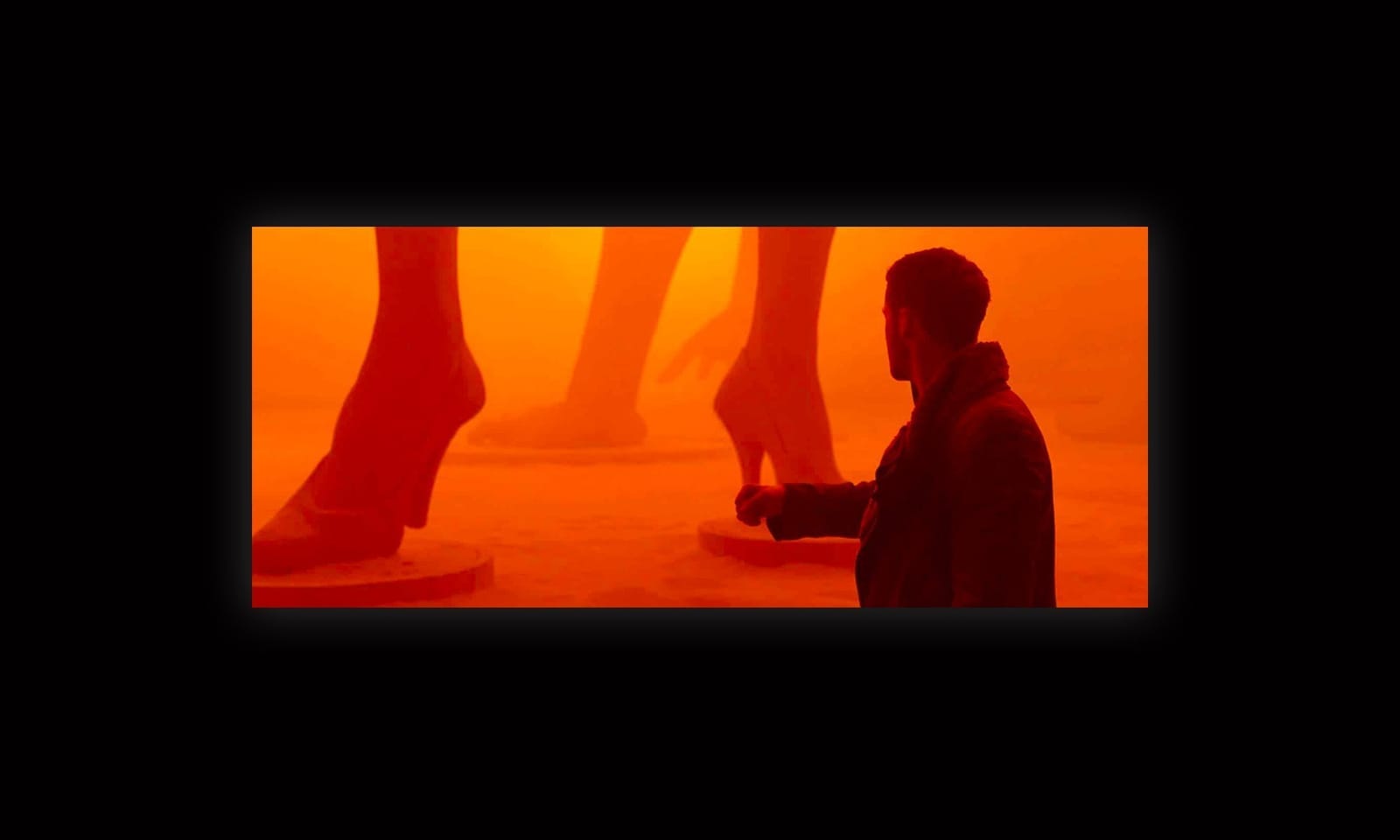The original Blade Runner was a rare gift of pure atmosphere. Since 1982, Ridley Scott’s overheated Los Angeles has been steadily rearranging the furniture when it comes to imagining the future. Today we naturally envision fires in the sky, broken weather, and sprawling fields of scrap. And we can be pretty sure that no matter what the future brings, elaborate advertisements will leer above us while we haggle and jive beneath buildings heavy with memory and rot. And it’s such a beautiful sight. Blade Runner is the cinematic sensation of laying on a bed in a dark motel room while distant traffic speeds down a rainy street: a concoction of nostalgia, dread, and the possibilities in the margins. More than anything, Blade Runner is a story about god, a fever dream about grabbing your creator by the throat and asking, “Why did you make me? And why must I die?”
The new iteration of Blade Runner is one of the few things to reappear three decades later in better-than-expected condition. I won’t discuss the details of the film—not because I worry about spoiling it for those who haven’t seen it, but because things like characters and plot are secondary elements used only to generate a mood. Nearly every scene in Denis Villeneuve’s sequel looks like material scraped from a dream, a Surrealist fusion of our synthetic world with ancient myth. At first, I craved the clutter, heat, and fun of the original film’s vision of a scuzzy and polyglot tomorrow; the landscape of 2049 is monotonous and arid. But its bleak architecture and sterile streets are probably a more accurate rendering of the future as our democracies calcify into corporate aristocracy and our cities become homogenized spaces that cater to the individual rather than the crowd. Beyond this resonance, however, most of 2049 stands outside of time like one of the eerie monuments in the front yard of the Bradbury building.
If the first Blade Runner was about confronting god, 2049 tries to calculate the value of the soul. If artificial intelligence can become so self-aware that it can feel lonely, does being human mean anything beyond legal ramifications? This question was first introduced when Roy Batty shed his tears in the rain; the sight of a robot weeping at the impermanence of existence left us wondering if mono no aware is a uniquely human feature—or a bug. (Mono no aware is such a beautiful term for the pathos of things, the recognition that all things must end; see also lacrimae rerum.) 2049 extends this theme by pondering our hardwired desire to feel unique. A humanoid searches for meaning and connection, and he wonders if he might be special. The possibility frightens him. Then it energizes him. The action circles a vague notion of finding purpose through sacrifice for others. But the bigger question of what distinguishes a human from any mechanism capable of brooding hangs in the haze without answers. Morality is garbled by the ways we define us and them.
When Ryan Gosling and Harrison Ford race towards a speedy-looking vehicle, 2049 seems destined to careen into the usual Hollywood showdown between good and evil. Instead, Villeneuve unexpectedly downshifts into the register of Bergman or Antonioni, leaving us with an extended meditation on cosmic-grade isolation that favors archetypes over characters and events. Rather than worrying about the bloodied hero crumpled on the floor, the camera is more interested in watching a black dog lope across the screen. Instead of savoring the vanquished foe, our attention is directed to the mindless pounding of the surf. There is no good or evil here, only ghosts in the machine and glitches in the sublime. 2049 is not a perfect film, but it is another rare gift.





